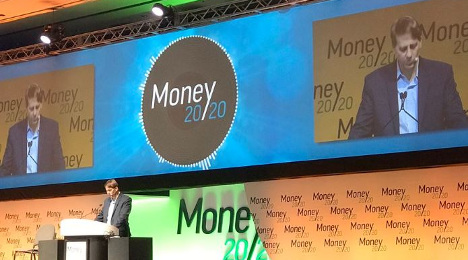What CFPB is doing through Project Catalyst

Consumer Financial Protection Bureau director Richard Cordray described the agency's objectives through what's been dubbed Project Catalyst during a speech in Las Vegas on Monday. (Photo courtesy of the American Bankers Association)
By subscribing, you agree to receive communications from Auto Remarketing and our partners in accordance with our Privacy Policy. We may share your information with select partners and sponsors who may contact you about their products and services. You may unsubscribe at any time.
LAS VEGAS –
Consumer Financial Protection Bureau director Richard Cordray generated attention on Monday, and this time it wasn’t connected with an enforcement action and millions of dollars in restitution and fines.
Rather, Cordray shared some insight about an endeavor called Project Catalyst, a 4-year-old effort that contains some components that might pique the interest of the auto finance community.
Cordray made a presentation during Money20/20, which organizers say is the “world’s biggest, boldest and best event covering payments and financial services innovation for connected commerce at the intersection of mobile, retail, marketing services, data and technology.” With about 10,000 attendees gathering for the event in Las Vegas, Cordray explained Project Catalyst has concentrated on encouraging development within payments, transactions, lending, underwriting, budgeting, money management and other areas, too.
Corday noted that one portion of the project is dubbed “Office Hours,” where bureau officials connect with a wide array of developers and other industry players.
Next, the director touched on what might be considered the opposite of how the CFPB typically operates as Cordray described the bureau’s “no-action letter” policy.
“We recognize that companies may be uncertain about how existing regulations apply to novel products that do not fit neatly within the regulatory structure,” Cordray told conference attendees.
Subscribe to Auto Remarketing to stay informed and stay ahead.
By subscribing, you agree to receive communications from Auto Remarketing and our partners in accordance with our Privacy Policy. We may share your information with select partners and sponsors who may contact you about their products and services. You may unsubscribe at any time.
“Under our ‘no-action letter’ policy, if CFPB staff is persuaded that a particular product holds promise for consumers and is structured in a way to mitigate risks to consumers, but is held back by regulatory uncertainty, the staff can issue a no-action letter to the company stating that we have no intent to initiate supervisory or enforcement action based on those particular innovations for a defined period,” he continued.
Furthermore, Cordray referenced another component that could be especially interesting to auto finance companies, especially operations that delve into the subprime space.
The bureau estimated that roughly 45 million Americans have either no credit history, or credit history that is too scarce or too stale to generate a credit score. Through Project Catalyst, the CFPB noted that it has learned that a number of innovators are seeking to expand responsible access to credit. Some companies are exploring opportunities to expand access by looking to alternative forms of data and newer methods of analyzing this data to assess an applicant’s creditworthiness.
“We have met with a number of innovators that seek to expand access to credit by looking to alternative forms of data and newer methods — such as machine learning — of analyzing this data to assess creditworthiness. They say they want to do this in compliance with the consumer financial laws, including the fair lending laws, but are unsure how to do so,” Cordray said.
“Through Project Catalyst’s program, bureau staff can consider issuing a no-action letter to foster access and innovation,” he went on to say. “We welcome a dialogue with anyone who is facing this sort of challenge in expanding access to credit.”
In a separate announcement about Project Catalyst, the bureau also mentioned that it has learned of firms that are developing tools to improve consumer engagement around credit reporting and address issues around accuracy and understanding. For example, officials highlighted one company is streamlining the process for consumers to dispute errors on their credit reports. Others model actions consumers might take to improve their credit standing. Increasingly, companies are also offering consumers more information about their credit scores and credit reports on a regular basis.
Near the end of his prepared remarks, Cordray touched on a practice that has landed some finance companies in trouble — third parties accessing consumer information. He emphasized how that process, when executed properly, is a key element in product development.
“Many exciting products we see through the lens of Project Catalyst depend on consumers permitting companies to access their financial data from financial providers with whom the consumer does business,” Cordray said. “We recognize that such access can raise various issues, but we are gravely concerned by reports that some financial institutions are looking for ways to limit, or even shut off, access to financial data rather than exploring ways to make sure that such access, once granted, is safe and secure.
“Let me state the matter as clearly as I can here: We believe consumers should be able to access this information and give their permission for third-party companies to access this information as well,” he continued. “In the Dodd-Frank Act, Congress likewise stated that, subject to regulations issued by the bureau, consumers should be able to access information maintained by a financial provider about the consumer’s use of their products.
“Congress also specified that the information ‘shall be made available in an electronic form usable by consumers.’ We look forward to productive engagement with all stakeholders on this topic to find solutions that put consumer interests first,” Cordray went on to say.
The CFPB’s complete report about Project Catalyst can be downloaded here.


